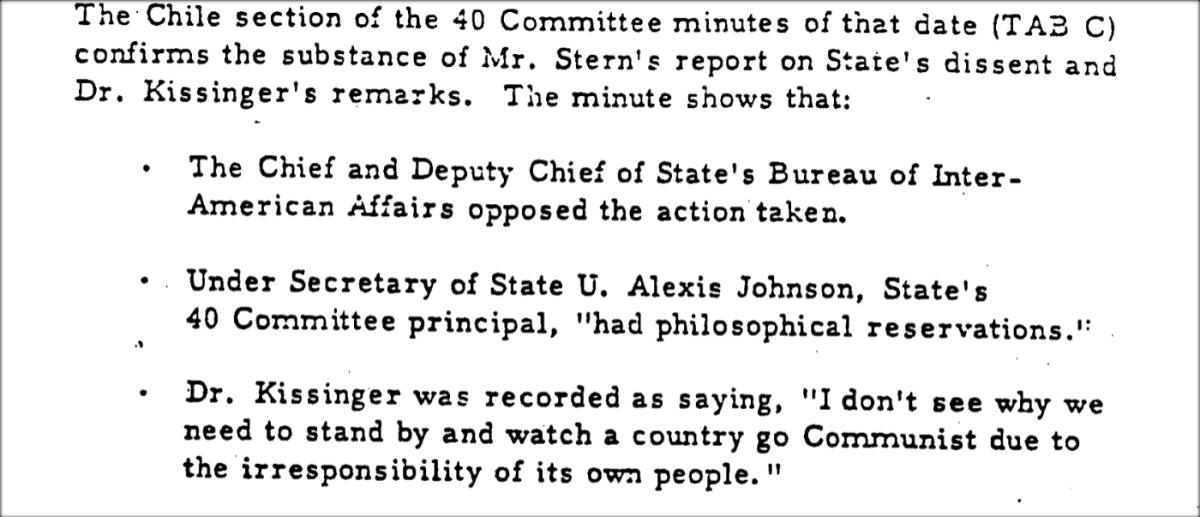Fifty years ago, as the New York Times prepared to break a major exposé on CIA covert operations in Chile, the architect of those operations, Henry Kissinger, misled President Gerald Ford about clandestine U.S. efforts to undermine the elected government of Socialist Party leader Salvador Allende, documents posted today by the National Security Archive show. The covert operations were “designed to keep the democratic process going,” Kissinger briefed Ford in the Oval Office two days before the article appeared fifty years ago this week. According to Kissinger, “there was no attempt at a coup.”
“I saw the Chile story,” Ford told Kissinger on September 9, 1974. “Are there any repercussions?” Kissinger replied: “Not really.”
In fact, the front-page story written by investigative reporter Seymour Hersh—“C.I.A. Chief Tells House Of $8 Million Campaign Against Allende in ‘70-’73”—set in motion the biggest scandal on covert operations the intelligence community had ever experienced. Hersh’s September 8, 1974, article led directly to the formation of a special Senate committee, chaired by Senator Frank Church, that conducted the first major investigation of CIA covert actions in Chile and elsewhere and that was the first congressional body to evaluate the role of secret, clandestine operations in a democratic society. The political repercussions forced President Ford to publicly acknowledge the CIA operations in Chile while forcefully denying they had anything to do with fomenting a coup. The president’s White House lawyer subsequently advised Ford that his statement “was not fully consistent with the facts because all the facts had not been made known to you.”
At a September 16th press conference, Gerald Ford became the first president to publicly acknowledge and defend CIA covert operations, which he characterized as limited to protecting Chilean democratic institutions from the threat of Allende. He stated that the CIA actions were "in the best interest of the people in Chile, and certainly in our best interest." (See timecode 11:55 in tape for Ford's statement.)
The Senate investigation, which also revealed CIA assassination plots against foreign leaders, and a similar investigative effort in the House of Representatives led to legislation to enhance checks and balances on CIA operations and curtail the ability of future presidents to “plausibly deny” covert action programs abroad. White House documents reveal the acute consternation expressed by Ford and Kissinger that covert operations might be restrained. “We need a CIA and we need covert operations,” Ford told his Cabinet nine days after the Times exposé was published. The article and a flood of follow up CIA stories by Hersh, as Kissinger later conceded in his memoirs, “had the effect of a burning match in a gasoline depot.”
